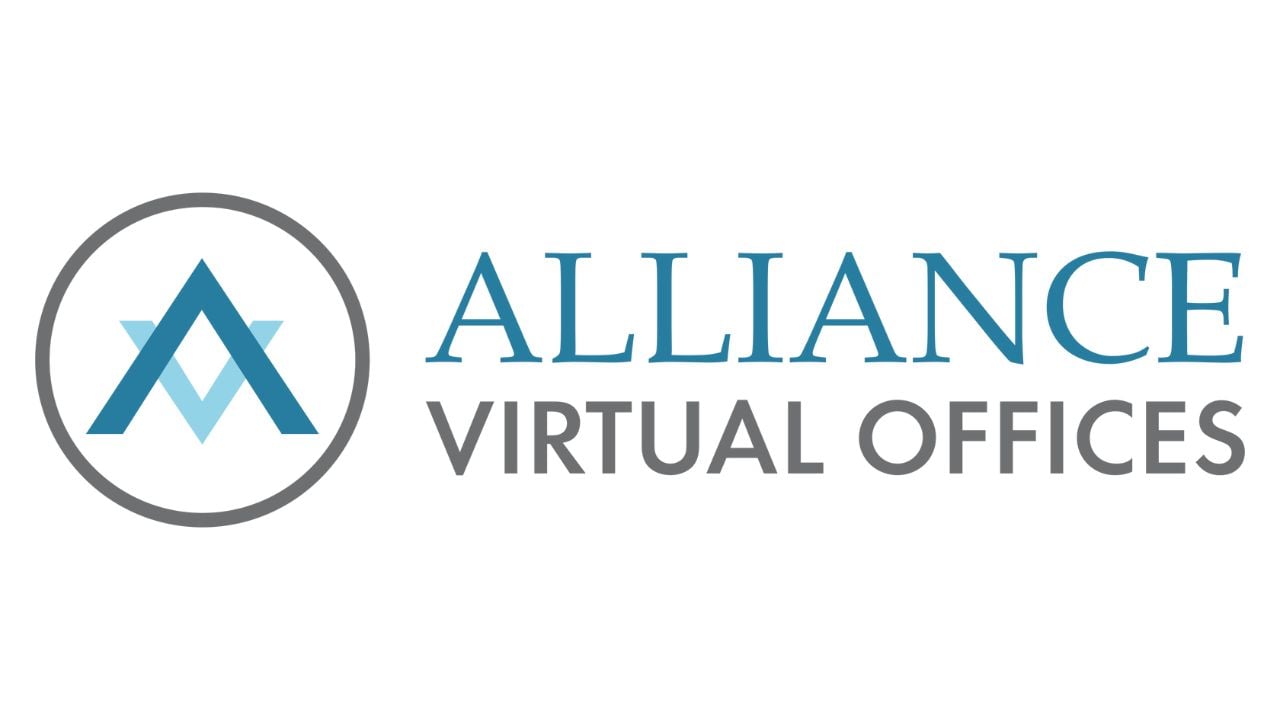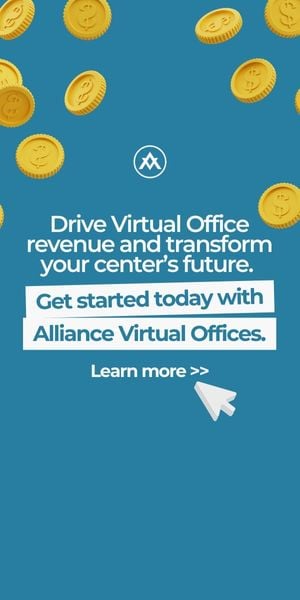- Why do some centers use aggregators, such as wholesalers and brokers, while others don’t?
- Leveraging aggregators offers significant advantages – but centers need to be ready for an influx of new clients.
- Mike Sullivan shares insights about the pros and cons of using aggregators to sell virtual offices or flexible workspace.
Should coworking and business centers use aggregators, such as wholesalers and brokers, to sell virtual offices or flexible workspace?
Before you read on, know that I’m the CMO at Alliance Virtual Offices — a wholesaler of virtual offices and flexible workspace. My intention is not to try and convince you to use — or not use — any type of aggregator, whether it’s a wholesaler, or a broker who gets a one-time commission.
Anyone who recommends working with — or not working with — a wholesaler, without first understanding your capabilities, business model, and objectives, is in no position to help you.
Only you and your partners or executive team have that level of understanding. Equipped with that knowledge, you can assess the current position of your company and decide whether working with aggregators aligns with your operational and growth strategy.
I’m here to share insights about why some centers use wholesalers, and why some don’t, so you can make an informed decision for your company.
Why do companies work with wholesalers?
We find most of our center partners work with us, among others like Davinci Virtual, for the following reasons:
- Your competitors are benefiting from aggregators.
Using an aggregator helps level the playing field. Consider the travel industry as an example. Major hotel chains, airlines, and car rental companies use aggregators to compete and drive revenue.
Whether you consider your main competitor an independent center across the street, or Regus, using an aggregator gives your center a significant advantage.
IWG uses them, too. The fact that the largest, longest surviving, and most profitable flexible space operator not only uses aggregators but also owns an interest in a group of wholesalers and brokers, demonstrates how advantageous it is to utilize a third party for growth.
- Cost-efficient reach and visibility.
It’s in our interests to create as big a client base for your products as possible.
That’s why wholesalers invest heavily in marketing — from social media to influencer marketing to affiliate marketing — to bring more people to us and, in turn, to you.
Leveraging this infrastructure and user base means centers can save both time and marketing costs.
Smaller and independent centers in particular benefit from this model, as they can access a broader audience without having to invest heavily in promotional activities.
- We create markets.
It’s also in our interests to broaden the market and develop channels where clients wouldn’t otherwise be exposed to virtual office solutions.
We work with affiliates, carry out our own content marketing, and develop other channels to create new, untapped markets to bring clients to centers that otherwise would not have purchased a virtual office as a business solution.
- Streamlined operations.
Aside from marketing, wholesalers like Alliance Virtual Offices take other operational tasks off your hands. One of them is CMRA compliance.
This is a vital but time-consuming task that requires clients to fill out a form and have it signed and notarized over a webcam. This final step is often a bottleneck that holds up sales and revenue.
This is one of many additional tasks that we take care of, which frees your center management team to focus on other priorities.
- Revenue and cross-selling opportunities.
At Alliance, we offer opportunities to sell your other services such as meeting rooms, mail forwarding, lobby listings, coworking, and so on.
We also provide revenue-share programs that enable you to earn revenue by selling our services to your own direct clients — adding value to clients while increasing revenue for your center and building corporate value.
Working with a wholesaler also allows for quicker market entry. This is especially valuable for new entrants or smaller centers.
Why DON’T companies work with wholesalers and aggregators?
This model isn’t for everyone.
Here are the questions you need to ask if you are considering whether or not to work with a wholesaler:
- Do you have the marketing experience, financial resources, and economies of scale to compete with large brands like IWG (Regus, Spaces, et al) and other nearby centers who may use wholesalers and brokers to generate business?
- Do you have experienced center staff who can manage increased traffic from virtual offices and meeting room bookings?
- Have you built your center in a way that provides easy and secure access to mailboxes? Do you have a process for clients to easily reserve meeting space?
The expectation is that wholesalers bring additional clients to your center, faster.
Working with a wholesaler doesn’t replace your own marketing efforts. While you continue to bring in your own direct clients, we are an extension of your center, providing local, regional, and national marketing strategies to help you compete more effectively against your competitors — and provide clients that you wouldn’t otherwise have access to. This also means it’s not a requirement for you to have the financial resources and economies of scale associated with large brands and competitors such as IWG.
The good news is, that means more revenue and higher profit margins. But it also means you need to be ready for an influx of new business.
Make sure you have the infrastructure and management in place to handle additional mail, including safe storage, easy and secure access, and experienced staff to take care of mail forwarding. Your center should also have the capacity to receive more meeting space bookings.
It’s our job to send more clients to you — but it’s your job to keep them.
Learn more about mail handling best practices here.
So, should you use a wholesaler or aggregator to sell your virtual offices or flexible workspace?
The place to start is by understanding your business model, what your center is capable of, its limitations, and what you need to do — if anything — to overcome those limitations.
Depending on your center location, pricing and nearby competition, wholesalers can bring in more clients, faster — and the resources you save in acquiring each client can be reinvested back into growing your business.
The revenue you gain from partnering with a virtual office wholesaler is nearly pure profit.
There is virtually no cost of goods, and only a marginal increase in expenses once the paying client starts using your center.
Plus, you can continue to bring in your own direct clients in addition to working with wholesalers.
Whether you’re looking to acquire partners, get funding, or achieve a higher valuation, more clients and a higher profit margin will help you achieve it by building corporate value.
Now you need to decide whether you can reach your objectives by going it alone, or by working with wholesalers and brokers
This article was written by Mike Sullivan, Chief Marketing Officer for Alliance Virtual Offices. Mike utilizes his deep understanding of the virtual office and flex space industry to provide expert insights that help centers streamline virtual office operations, reduce cost, and maximize revenue.



 Dr. Gleb Tsipursky – The Office Whisperer
Dr. Gleb Tsipursky – The Office Whisperer Nirit Cohen – WorkFutures
Nirit Cohen – WorkFutures Angela Howard – Culture Expert
Angela Howard – Culture Expert Drew Jones – Design & Innovation
Drew Jones – Design & Innovation Jonathan Price – CRE & Flex Expert
Jonathan Price – CRE & Flex Expert











